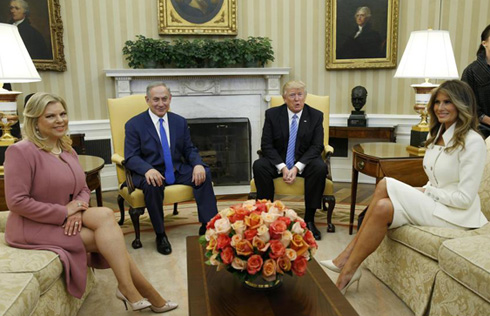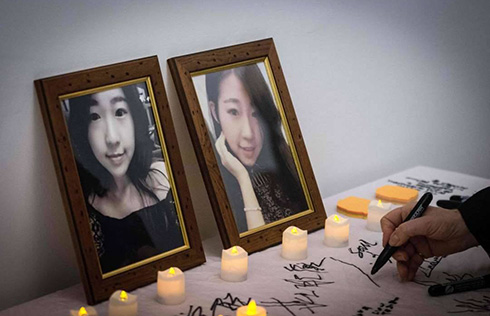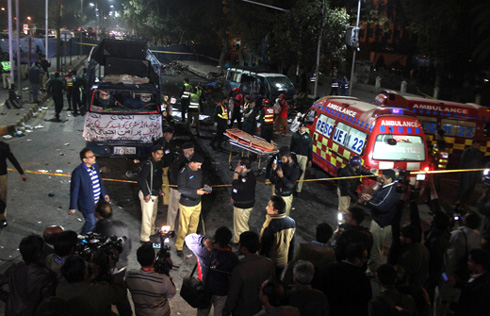Beijing opposed to DPRK missile launch
 |
|
A surface-to-surface medium- and long-range ballistic missile Pukguksong-2 is test-fired by DPRK on Jan 12, 2017. [Photo/VCG] |
China voiced opposition to the latest missile launch by the Democratic People's Republic of Korea and urged all parties involved to shoulder their responsibility in solving the Korean Peninsula issue peacefully through dialogue.
On Sunday morning, the DPRK launched a missile that analysts said was meant to test the administration of US President Donald Trump. It is the first such launch since Trump took office on Jan 20.
The DPRK's Korean Central News Agency said the missile was a Pukguksong-2, a Korean-style, new type of strategic weapons system that can be equipped "with a nuclear warhead".
"China opposes the DPRK violating United Nations Security Council resolutions and conducting the missile launch," Foreign Ministry spokesman Geng Shuang said in a news conference in Beijing on Monday.
On Monday, UN Secretary-General Antonio Guterres and the UN Security Council expressed strong opposition to the missile launch by the DPRK, calling on Pyongyang to fully comply with its international obligations to denuclearize.
The launch "is a further troubling violation" of Security Council resolutions, Guterres said.
Guterres urged the DPRK leadership to return "to the path of denuclearization", while appealing to the international community to continue addressing this issue in a united manner, the Secretary-General's spokesperson said in a statement.
The Security Council had urgent closed-door talks on Monday afternoon. In a statement issued after the meeting, the Security Council also strongly condemned DPRK's missile launches on Sunday and on Oct 19, 2016.
The Council reiterated the importance of maintaining peace and stability on the Korean Peninsula and in northeast Asia at large. It welcomed Council members' efforts to facilitate a peaceful and comprehensive solution through dialogue.
The members of the Council agreed to continue close monitoring of the situation and to take further measures in line with the Council's previously expressed determination.
Geng reiterated that the root cause of the issue of the DPRK's nuclear and missile development lies in the differences the DPRK has with the US and the ROK. He said that China is willing to work with those countries, including the US, to resolve the issue.
China has been working to promote talks between the parties involved, Geng said, adding that "dialogue and consultation are the final way out for solving the issue of the Korean Peninsula".
"We hope all parties can shoulder their own responsibilities and do what they should do," he said.
Huang Youfu, an expert on Korean studies at Minzu University of China, said the Foreign Ministry's response shows China's consistent position regarding the issue.
Huang said China believes that the DPRK should follow UN Security Council resolutions, while parties involved should not consider the launch an excuse to complicate the situation or heighten tensions in the region.
Pointing out that "the main parties of dialogue" are the US and the DPRK, Huang said: "It's crucial that the DPRK stops its nuclear and missile development, in the first place. On the other hand, the US and the ROK shouldn't keep resorting to military pressure, which could force the DPRK to go against UN resolutions."




















